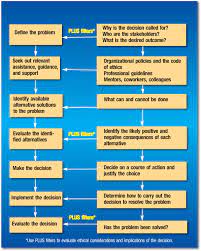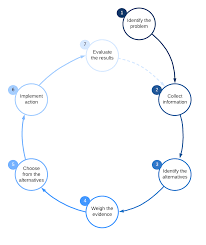Economic Decision Making Examples
When it comes to economics, decision making plays a crucial role in determining the success or failure of individuals, businesses, and governments. Here are some examples of economic decision making in action:
Pricing Strategy:
Companies often have to make decisions about pricing their products or services. This involves considering factors such as production costs, competition, and consumer demand in order to set prices that will maximize profits.
Investment Decisions:
Investors must carefully analyze various investment options and choose the ones that offer the best returns with acceptable levels of risk. This involves weighing factors such as potential profitability, market conditions, and diversification.
Government Spending:
Governments make decisions about how to allocate resources through budgeting and spending policies. They must balance priorities such as infrastructure development, social programs, defense, and debt management while considering economic impact and public needs.
Consumer Purchasing Choices:
Individuals make economic decisions every day when they choose what goods and services to purchase. Factors such as price, quality, brand reputation, and personal preferences all influence these decisions.
Labor Market Decisions:
Workers must decide on job opportunities based on factors such as salary, benefits, job security, location, and career advancement prospects. These decisions impact both individual livelihoods and overall labor market dynamics.
6 Essential Tips for Making Smart Economic Decisions
- Consider the opportunity cost of each decision.
- Evaluate the long-term consequences of your choices.
- Take into account the risks involved in different options.
- Use data and research to inform your decisions.
- Seek advice from experts or professionals when needed.
- Remember to factor in external factors like market trends and government policies.
Consider the opportunity cost of each decision.
When making economic decisions, it is important to consider the opportunity cost of each choice. Opportunity cost refers to the potential benefit that is foregone when one alternative is chosen over another. By weighing the benefits and drawbacks of different options and understanding what will be sacrificed by choosing one course of action over another, individuals, businesses, and governments can make more informed decisions that maximize their overall well-being and resources. Taking into account the opportunity cost helps ensure that decisions are made with a clear understanding of the trade-offs involved, leading to more effective allocation of resources in the long run.
Evaluate the long-term consequences of your choices.
When making economic decisions, it is crucial to evaluate the long-term consequences of your choices. Consider how your decisions today will impact your future financial well-being, as well as the broader economic implications. Taking into account factors such as potential risks, rewards, and sustainability can help you make more informed decisions that align with your long-term goals and objectives. By carefully assessing the lasting effects of your choices, you can navigate economic challenges with greater foresight and confidence.
Take into account the risks involved in different options.
When making economic decisions, it is crucial to take into account the risks involved in different options. Evaluating the potential risks associated with each choice allows individuals, businesses, and governments to make informed decisions that align with their risk tolerance and overall goals. By carefully considering the risks, such as financial loss, market volatility, or regulatory changes, decision-makers can better assess the potential outcomes and make strategic choices that mitigate risk and maximize potential rewards.
Use data and research to inform your decisions.
Using data and research to inform economic decision making is crucial for achieving successful outcomes. By analyzing relevant information and conducting thorough research, individuals, businesses, and policymakers can make more informed choices that are backed by evidence. Data-driven decision making helps in understanding market trends, consumer behavior, financial risks, and other key factors that influence economic decisions. By leveraging data and research effectively, decision makers can mitigate uncertainties and make strategic choices that are more likely to lead to positive results in the dynamic economic landscape.
Seek advice from experts or professionals when needed.
When navigating complex economic decision-making scenarios, it is essential to seek advice from experts or professionals when needed. Consulting with individuals who have specialized knowledge and experience in the relevant field can provide valuable insights and guidance that can help you make more informed decisions. Whether it’s seeking financial advice from a certified financial planner, consulting with an economist on market trends, or getting input from a business consultant on strategic planning, leveraging the expertise of professionals can enhance your decision-making process and increase the likelihood of achieving favorable outcomes.
Remember to factor in external factors like market trends and government policies.
When making economic decisions, it is essential to consider external factors such as market trends and government policies. These external influences can have a significant impact on the outcomes of our decisions. Market trends, such as changes in consumer preferences or shifts in supply and demand, can affect the success of pricing strategies or investment decisions. Similarly, government policies on taxation, regulations, or subsidies can influence business operations and financial planning. By taking into account these external factors, individuals and organizations can make more informed and adaptive economic decisions that align with the broader economic environment.




